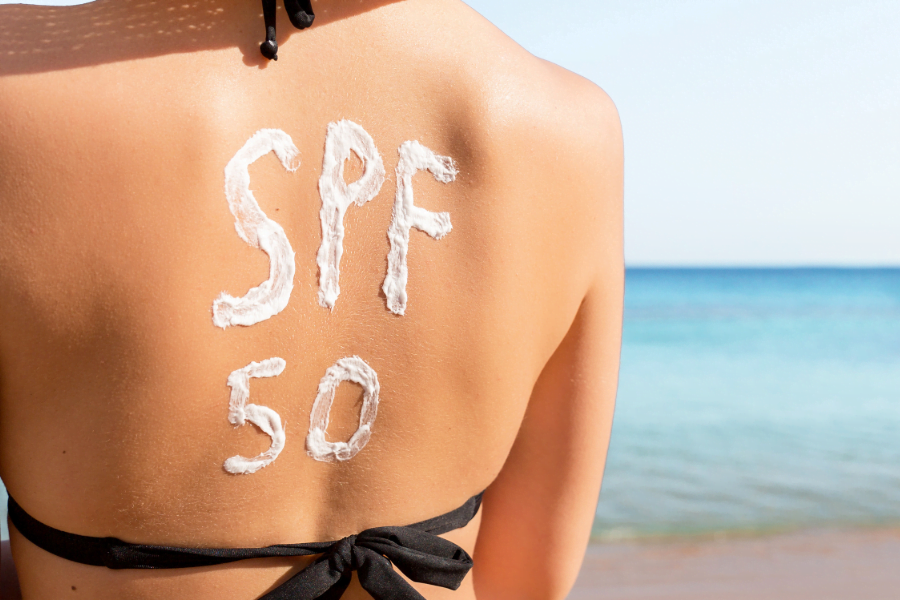
SPF Sun Protection Factor
In the face of growing consumer awareness and strict regulations concerning products displaying sun protection factor (SPF), WENEOS is dedicated with expertise and passion to guiding its customers in submitting reliable data to regulatory bodies.
SPF evaluation, which quantifies a product’s protection against UVB + UVA rays, is carried out in accordance with the latest standards in force. This approach is part of our drive to optimize product development and comply with regulatory requirements.
Note that SPF will be impacted by several factors (phototype, quantity, spreading quality, external conditions, etc.) and should be considered as a scale (indication) of relative effectiveness in limiting the appearance of erythema, used as a reference for consumer choice.
Find out more about SPF on our LinkedIn page
days for an in vitro study with a final report
solar studies carried out
%
compliance with solar standards
Development
As part of your product development or to identify a candidate ingredient, we offer screening tests that enable you to assess UVB and UVA protection with ease.
SPF In Vitro - double plates - without irradiation
This test involves evaluating the Sun Protection Factor (SPF), which expresses a sunscreen product's level of protection across the entire UV spectrum, using a suitable substrate on which the product has been spread and measured using a spectrophotometric method.
(ref. HePACK-SCREEN)
CLAIM
We can assess the sun protection of your products in full compliance with official methods, or claim the properties of your products through exclusive tests developed by WENEOS.
SPF in vitro - ISO 23675:2024
ISO 23675:2024 involves assessing the sun protection factor (SPF), which expresses a sunscreen product's level of sun protection across the entire UV spectrum, using a multi-substrate approach (molded and sandblasted plates) on which the product has been spread and measured using a spectrophotometric method. This method allows better correlation with In Vivo results. To take account of possible photoinstability, the product was pre-irradiated before measurement.
(ref. HeSPF-ISO)
FPS HDRS - ISO 23698:2024
ISO 23698:2024 proposes a hybrid approach combining in vitro and in vivo tests to assess the UV protection of sunscreens, in particular their Sun Protection Factor (SPF). It uses diffuse reflectance spectroscopy (DRS) to measure UVA absorbance (320-400 nm) on the skin. To obtain a complete UV absorbance spectrum, the in vitro absorbance values are adjusted according to the data obtained via DRS, enabling the in vitro UVB absorbance to be mathematically linked to the UVA portion measured by DRS.
*Available from WENEOS from January 2025 (ref. HDRS-ISO)
SPF in vivo - ISO 24444:2019
La norme ISO 24444 – Cosmétiques – Méthodes d'essai de protection solaire – Détermination in vivo du facteur de protection solaire (FPS) – repose sur la lecture d'une réponse érythémale de la peau au rayonnement ultraviolet (UV) provenant d’une source artificielle calibrée. Le FPS est un rapport calculé à partir de la dose requise pour induire une réponse érythémale minimale (notion de Dose Erythémale Minimale - DEM) avec ou sans application de produit solaire sur la peau de sujets humains participant aux essais. La méthode actuelle prévoit uniquement une détermination statique.
*Ces tests sont fournis à titre informatif uniquement. Afin de respecter nos valeurs éthiques, nous ne réalisons pas ces tests, ni en interne ni par l'intermédiaire de partenaires.
SPF in vivo - FDA 2011 21 CFR Parts 201 and 310
La norme FDA 2011 21 CFR Parts 201 and 310 – Labeling and Effective Testing; Sunscreen Drug Products for Over-the-Counter Human Use – Food and Drug Administration (U.S.) – repose sur la lecture d'une réponse érythémale de la peau au rayonnement ultraviolet (UV) provenant d’une source artificielle calibrée. Le FPS est un rapport calculé à partir de la dose requise pour induire une réponse érythémale minimale (notion de Dose Erythémale Minimale - DEM) avec ou sans application de produit solaire sur la peau de sujets humains participant aux essais. La méthode actuelle prévoit une détermination statique et de résistance à l'eau.
*Ces tests sont fournis à titre informatif uniquement. Afin de respecter nos valeurs éthiques, nous ne réalisons pas ces tests, ni en interne ni par l'intermédiaire de partenaires.
Control
To optimize your suncare products or check their quality, we offer you exclusive tests developed by WENEOS.
Comparison of in vitro signal absorbance measurements (batch, aging, etc.)
The statistical comparison method makes it possible to compare two sun protection products in terms of ageing, batch, benchmark, etc. When checking the absorbance spectrum between a reference and a test product using an in vitro method, two important rules must be observed. First of all, compare the two products at the same time and under the same conditions, to limit measurement variability. Secondly, a three-step verification based on absorbance values, including comparison of curve shape, variability and intensity.
(ref. HeCOMP-1)
Published method : *In vitro comparison - A new accessible and reliable statistical method to compare the global UV protection properties of cosmetics - Lutz and S. Miksa, H&PC Sun Care, July/August 2013 | *Sunscreen products: Some practical applications for a new comparison test method to help Development and ensure Quality Controls - D. Lutz, S. Miksa and C. Guy, H&PC Today, November/December 2014
Discover the analyses additionalfor all-round sun protection
UV protection
- SPF – UVB
- UVAPF – UVA
- UVA:UVB ratio
- Photostability
- Absorbance spectrum
Beyond UV
- Ultra-Long UVA
- Blue Light
- Visible
- Infrared
- Full Spectrum
- UVC
Resistance
- Water resistance
- Sweat resistance
- Sand resistance
- Rub resistance
- Wet Skin Application
- Extreme conditions
- Persistence | Long-lasting
- Immediate protection

